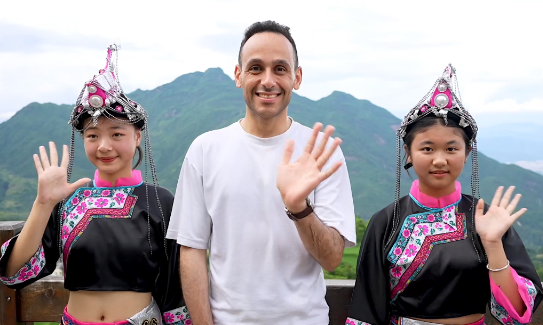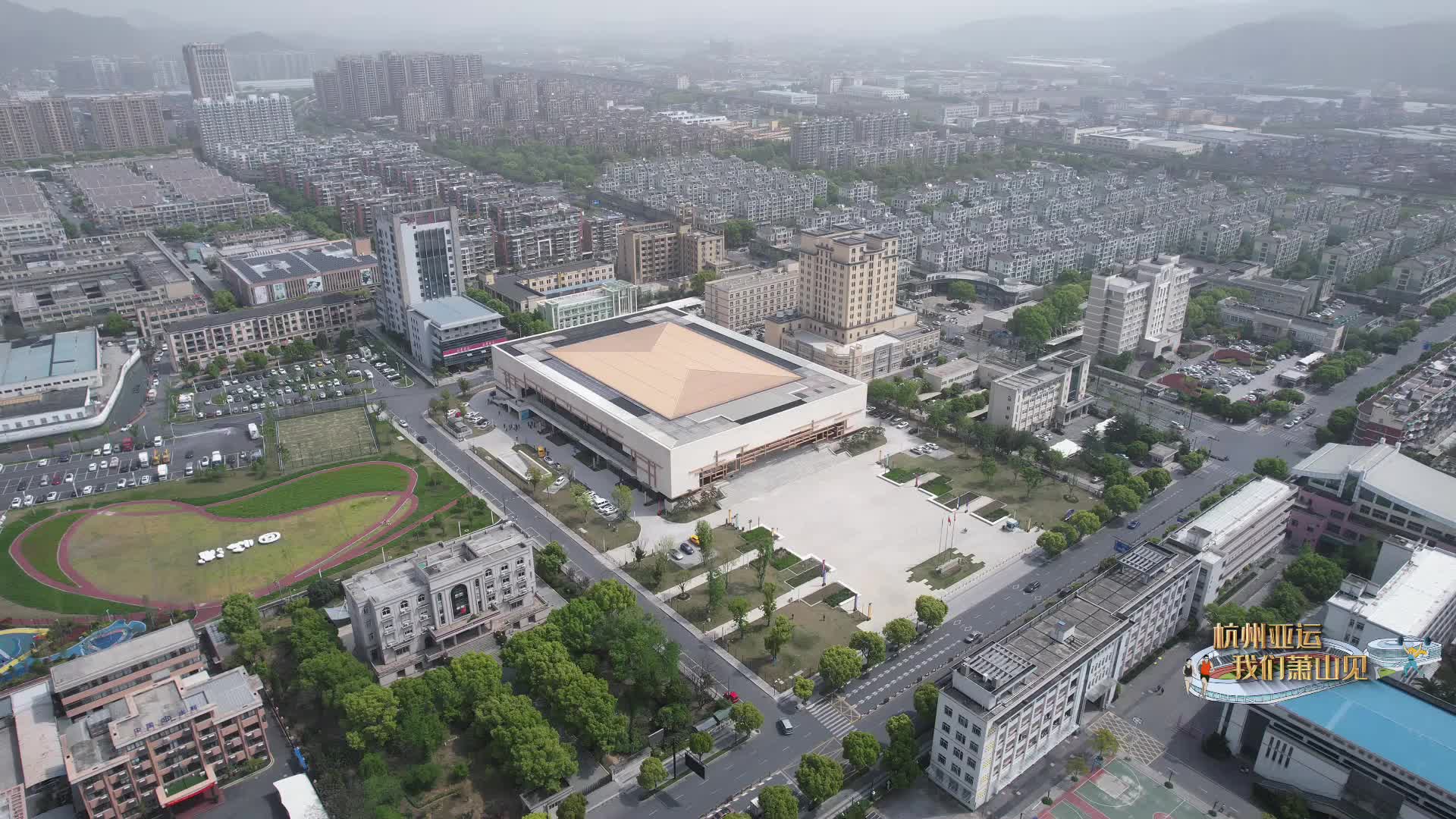Building a beautiful China
President Xi Jinping once used the phrase "blue skies, green lands and clear waters" to describe the human-nature harmony of Chinese modernization. The image his words bring to mind is highly relevant on Saturday, the 54th Earth Day.
Under the leadership of Xi, also general secretary of the Communist Party of China (CPC) Central Committee and chairman of the Central Military Commission, China has over the past decade acted on the belief that lucid waters and lush mountains are invaluable assets, pursued a comprehensive green transition in economic and social development, and endeavored to bring Xi's harmonious image to life.
BRINGING BACK BLUE SKIES
Fresh air used to be a "luxury" for residents of smog-shrouded north China in winter.
"The top priority in tackling smog pollution and improving air quality is controlling PM2.5 pollutants," Xi said during an inspection tour in Beijing in February 2014.
In a discussion with national legislators from southwest China's Guizhou Province a month later, Xi said that air quality is crucial to the people's sense of happiness.
To bring back blue skies, China has published an action plan to rein in air pollution, and written the prevention and control of air pollution into the report of the 19th CPC National Congress.
Over the past decade, China has developed the world's largest clean coal-burning power generation base and built up the world's highest installed wind and photovoltaic power capacity. It has produced the most new energy vehicles globally for eight consecutive years.
Today, fresh air is no longer a luxury. China's PM2.5 density fell 57 percent from 2013 to 2022 and its carbon dioxide emissions per unit of GDP declined 34.4 percent. The country's annual number of days with serious air pollution dropped sharply by 92 percent.
GREENING CHINA
Planting trees is a noble cause that will benefit generations to come, Xi said. And he has put the words into action.
Xi has participated in annual tree-planting activities 11 times as the general secretary of the CPC Central Committee, and has undertaken multiple field trips to areas severely affected by sand damage, including Ningxia, Gansu and Hebei.
In September 2019, Xi presented a national medal and awarded the national title of "People's Role Model" to Wang Youde, for his efforts in afforestation and sand controlling, ahead of the 70th anniversary of the founding of the People's Republic of China.
During an inspection in northwest China's Ningxia Hui Autonomous Region in April 2008, Xi, then Chinese vice president, planted trees with Wang. Xi held Wang's hands firmly and told local foresters they were engaged in "an ordinary but great cause."
Planting trees has become a common practice for the Chinese people. After decades of afforestation, China has created the world's largest area of planted forests, with its forest coverage rate more than doubling from 12 percent in the early 1980s to 24.02 percent last year.
Data from NASA satellites shows that at least 25 percent of the global foliage expansion since the early 2000s has taken place in China.
KEEPING WATERS CLEAR
Rippling blue waves, lush green trees and twittering birds make summer the most pleasant season at the Xixi wetland in Hangzhou, the capital of east China's Zhejiang Province.
Few could today imagine that over 20 years ago, the rivers there were filled with litter and many residents chose to move away. The turning point came in 2003, when a wetland conservation program was launched with the support of Xi, then secretary of the CPC Zhejiang Provincial Committee. Drastic changes have since taken place, and the wetland even becomes China's first national wetland park.
During a visit there in March 2020, Xi called for giving top priority to wetland protection and making maximum efforts to maintain the ecology and water environments of wetlands.
The wetland's changes offered a glimpse into China's efforts, led by Xi, to combat water pollution, restore sound ecosystems and promote sustainable growth.
Xi has undertaken extensive inspections and spearheaded green development initiatives along China's longest waterway the Yangtze River, and visited all nine provinces and autonomous regions along the Yellow River, the second longest.
The idea that "lucid waters and lush mountains are invaluable assets" was proposed by Xi, and it has emerged as a guiding principle in China's pursuit of green development.
More than 1.2 million officials are serving as river and lake chiefs nationwide. A 10-year fishing ban has been implemented in the pivotal waters of the Yangtze River to protect aquatic biodiversity. Green development within the Yangtze River Economic Belt has advanced vigorously.
Thanks to these concerted efforts, rivers and lakes in China are under better protection and have witnessed improved water quality. Good-quality surface water accounted for 87.9 percent of all the country's surface water last year, up from 67.9 percent in 2017.
-
Foreign teacher, Hangzhou students capture picturesque countryside
August 9, 2023
-
Hangzhou Asian Games launch 50-day-to-go campaign
August 4, 2023
-
Hangzhou achieves 6.9% GDP growth in H1 2023
July 27, 2023



